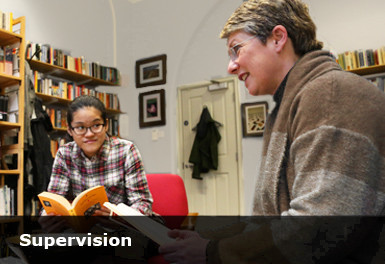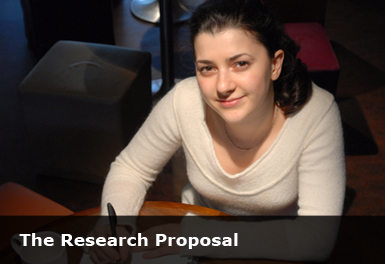
Application process for PhD and EdD
Finding a potential supervisor
You are required to identify a potential supervisor before submitting your PhD/EdD application. When you contact potential supervisors, you should discuss their availability to supervise and the fit between your proposed PhD project and the area of their research.
Indication in principle that the supervisor is willing to supervise your project does not guarantee an offer of admission. This is because potential supervisors cannot independently make a final decision on admission to the PhD/EdD.
Potential supervisors will only indicate if, pending a successful application, they would in principle be able to supervise you. This is because the fit between your doctoral research proposal (see below) and the specific research field of the potential supervisor is an essential component of doctoral studies.
Time and interest permitting, the potential supervisor may advise on how a research proposal might be developed or improved. Such advice does not guarantee an offer of admission.
Further help
- In the research section of this website, you can find academic staff profiles, including supervision availability
- List of potential supervisors for 2025 admissions
- Information on how and when to apply for the PhD/EdD is available from the Postgraduate Admissions Office
Progression from Masters to the Doctoral programme
If you are a student on the Faculty Masters programme and you intend to proceed straight onto the doctoral programme, please note that continuation is not automatic and must be preceded by an application to the doctoral programme, regardless of funding arrangements, as well as meeting the academic requirements for continuation.

Supervisors
All applicants are required to name a potential supervisor on your application because they will be the first person to review your application after you submit it. This is the potential supervisor whom you would have contacted ahead of submitting your application.
If the potential supervisor would like to take the application further, you may be contacted for an interview.
If the potential supervisor is not available, your application will be reviewed by the doctoral admissions team to determine whether another supervisor may be identified.
Given the range of areas of research and fields of expertise represented in the Faculty, not identifying a supervisor at the point of application is unlikely to result in a match being identified through this route.
Applicants are strongly encouraged therefore to contact supervisors ahead of submitting their application. If you have not identified a supervisor at the point of application, we may not be able to identify any supervisor with aligned research interests and therefore we may not be able to make an offer of admission.

Admissions decisions
Upon submission of the application, the named potential supervisor reviews the full application and makes a recommendation to the Faculty of Education doctoral admissions team. The doctoral admissions team further reviews the full application and makes a final decision as to whether an offer of admission will be made, and what conditions for admission may apply.
Please note that this final decision normally takes up to 12 weeks to reach the applicant, but may on occasion take longer.

Funding
Applicants who have applied for funding, applied by the appropriate funding deadline, and have an offer of admission (even if this has not yet been communicated to the applicant) will be considered for funding.
Consideration for funding starts with a ranking of all eligible applications, undertaken by a panel convened by the Faculty of Education doctoral admissions team. This panel include academics working in a range of fields and research areas and applying a large variety of methods in their own work. The panel generates a full set of funding recommendations on behalf of the Faculty.&
Funding recommendations are then forwarded from the Faculty of Education to the University's central Postgraduate Funding Committee, who review all applications across the University and make recommendations for funding allocations. Decisions about funding for doctoral places are communicated to applicants starting in February, and can be announced as late as the summer before entry.
Unfortunately, there is limited funding and we cannot therefore promise to fund every applicant who receives an offer of a place. You may receive an offer to study on our doctoral programme, without receiving any funding.
The Faculty of Education doctoral admissions team, the Cambridge Trust, the ESRC DTP and the AHRC DTP are all committed to supporting scholars from diverse backgrounds to join our doctoral programmes. When it comes to funding, we consider applications holistically, weighing up the research proposal, prior academic record, references, and evidence of resilience and other relevant personal circumstances.
 The Research Proposal
The Research Proposal
All doctoral applicants are required to submit a research proposal of up to 1,500 words (exclusive of bibliography/reference list) outlining their proposed research project.
Please read Guidance for research proposal
Important note
It is very important that the area you want to work in is broadly compatible with our research interests and that you name a potential supervisor on your application
 The Personal Statement
The Personal Statement
As part of your application, you will be asked to provide a holistic overview of your reasons for applying, along with the educational and professional experiences that have brought you to this point. Please cover the following areas:
- Your Motivation
- Independent Study
- Recent Developments Within Your Research Area
- Technical Skills
- Additional Skills
Please read Guidance for personal statement.
